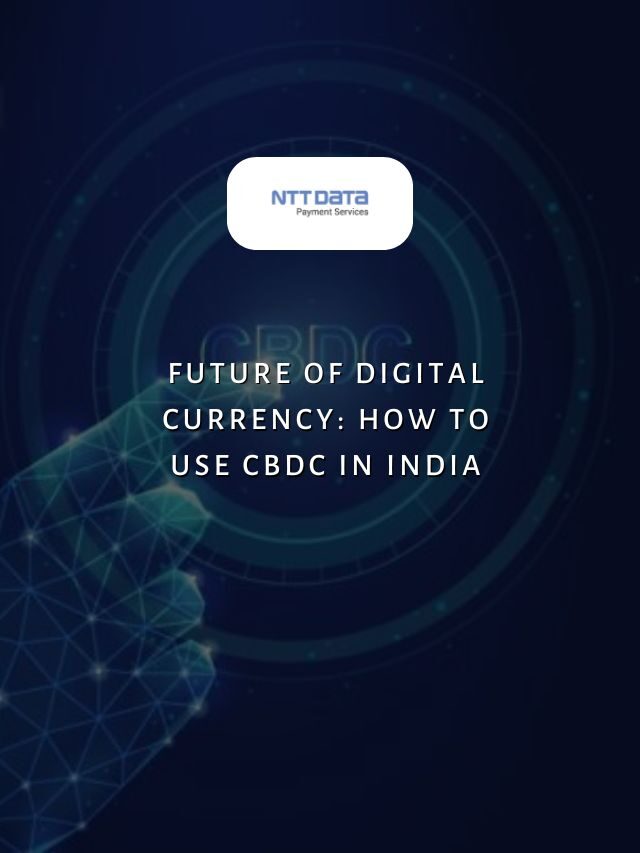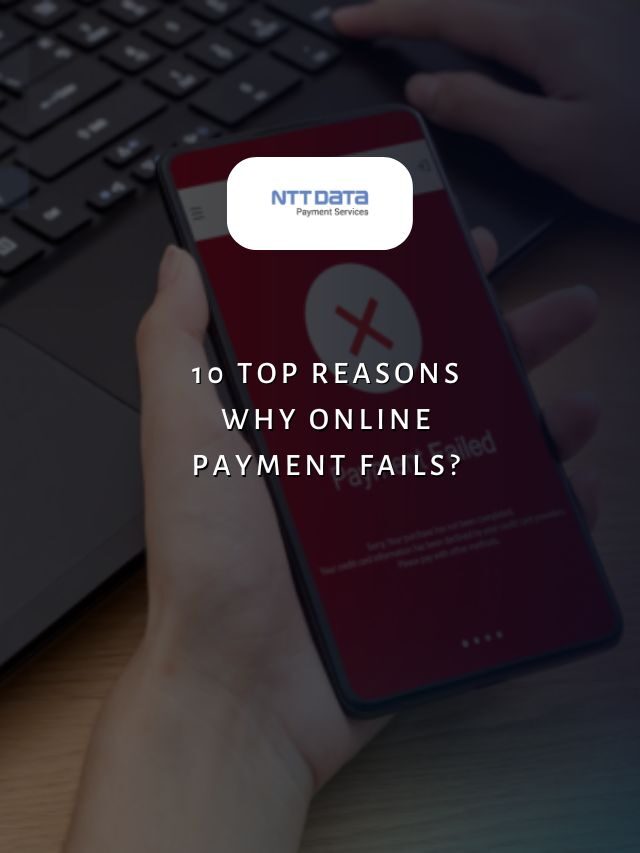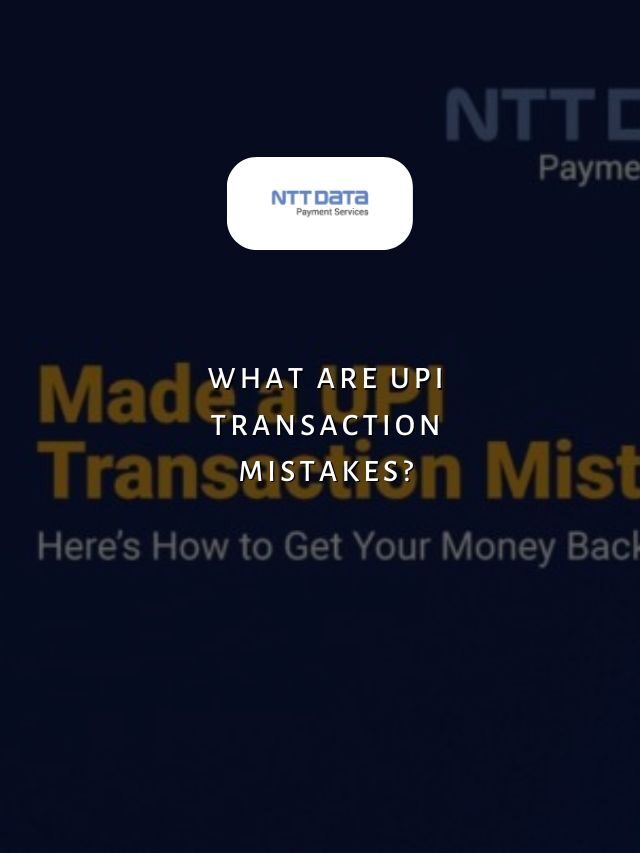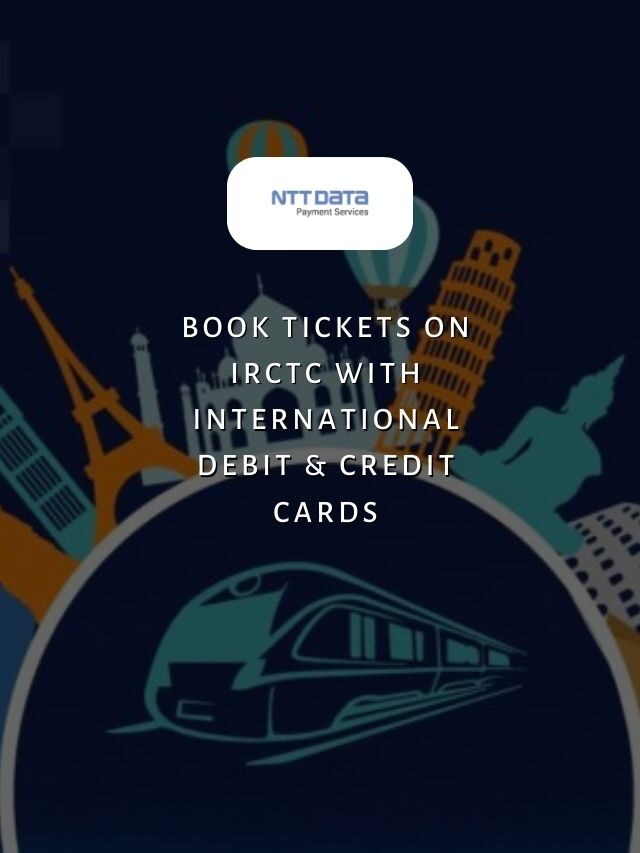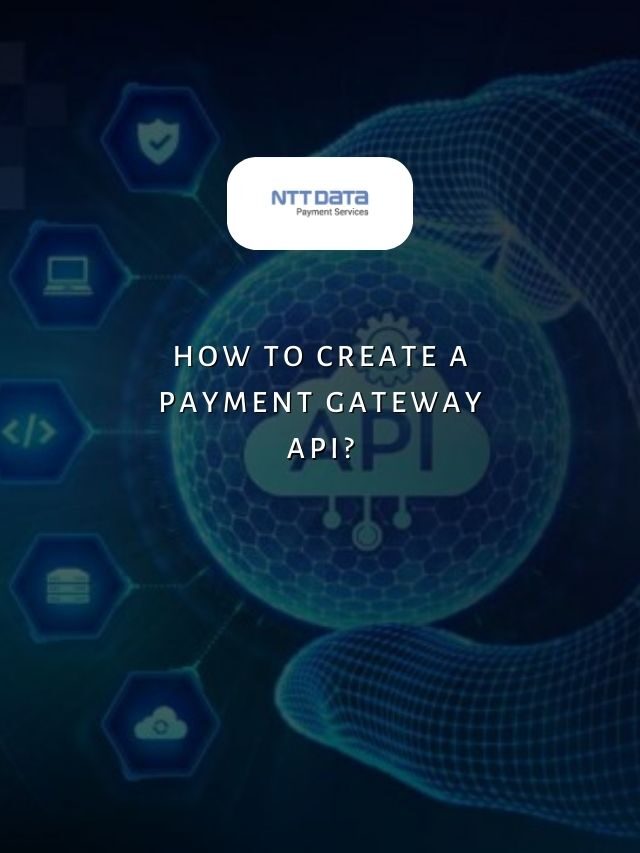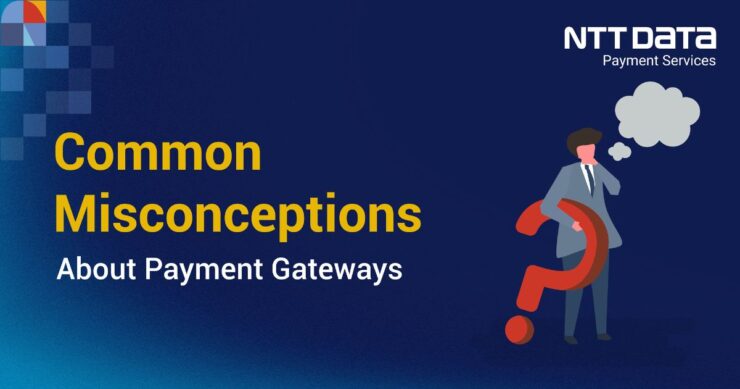
Table of Contents
- 1 Understanding Payment Gateways in Detail
- 2 What is a payment gateway?
- 3 Recent Web Stories
- 4 Top 9 Misconceptions about Payment Gateway
- 4.1 #1: All payment gateways are the same
- 4.2 #2: Setting up a payment gateway is complicated
- 4.3 #3: Payment Gateways Charge Monthly or Annual Fees
- 4.4 #4: All transactions are at the same fee rate
- 4.5 #5: Payment gateways handle all compliance
- 4.6 #6: Chargebacks can always be disputed
- 4.7 #7: Payment gateways handle all customer support
- 4.8 #8: Integrating multiple gateways is difficult
- 4.9 #9: Payment gateways are only for online stores
- 5 Secure Your Online Transactions with NTT DATA Payment Services
- 6 Payment Gateway for Business Success
- 7 Misconceptions about Payment Gateways: FAQs
Payment gateways play a crucial role in enabling online transactions. However, there are many misconceptions surrounding how they work. This blog aims to address 9 common myths and misconceptions about payment gateways.
Understanding Payment Gateways in Detail
Understanding the common myths can help you make informed decisions when choosing a payment processor for your business. From fees to features, many business owners do not fully understand how payment gateways work or what they can do.
Whether you are just starting your online business or have been selling online for years, you must know the latest innovations and applications in payment gateways. Understanding the realities will help online businesses and merchants utilise payment gateways efficiently.
What is a payment gateway?
A payment gateway is a type of technological solution that allows online shops, e-businesses, subscription services, and other merchant accounts to handle credit cards or direct payments. It is the link between a company’s website and the processing services of credit card schemes like Visa, MasterCard, Rupay, American Express, etc. Payment gateways securely send and encrypt credit card information to conduct transactions.
Recent Web Stories
Top 9 Misconceptions about Payment Gateway
Here are the top 9 misconceptions about payment gateways.
#1: All payment gateways are the same
Although they all enable online payments, payment gateways vary greatly in terms of functionality, costs, accepted payment methods, and customer care. Larger gateways tend to offer more payment options and integrations but may charge higher transaction fees.
Smaller processors may have lower rates but fewer features. Businesses need to evaluate their specific needs to find the best fit. Not all gateways are created equal.
#2: Setting up a payment gateway is complicated
Many small businesses worry that integrating a payment gateway will be a technically complex process. However, most major gateways now offer simple plug-and-play solutions. Gateways provide easy-to-follow documentation and code snippets to add payments to a website or app. Payment buttons and forms can usually be added within an hour or two. While custom integrations require more work, the basic setup is straightforward for any tech-savvy individual.
#3: Payment Gateways Charge Monthly or Annual Fees
It is a wide and common misconception that payment gateways charge money on monthly or annual subscriptions or even take commissions based on transactional volumes. The truth is that businesses only pay the setup costs during a payment gateway integration. So it’s more like a one-time investment to integrate the payment gateway’s frameworks, and no money will be charged after that.
#4: All transactions are at the same fee rate
In reality, payment gateway rates vary based on several factors like payment type, transaction size, and monthly volume. For example, credit card rates tend to be higher than debit or bank transfer rates. Larger ticket transactions usually qualify for lower rates.
Businesses that exceed certain monthly processing volumes may unlock even better pricing tiers. Understanding these nuances can help optimise costs.
#5: Payment gateways handle all compliance
While gateways shoulder much of the PCI compliance burden, merchants are still responsible for protecting customer payment data. Websites need to implement SSL certificates and ensure forms, databases, and servers meet basic security standards.
Businesses also need to comply with local laws regarding data storage, refund policies, and reporting requirements that may differ by country or industry.
#6: Chargebacks can always be disputed
Unfortunately, not all chargebacks can be successfully challenged. If a customer claims fraud or unsatisfactory goods/services, the bank will almost always side with them initially and refund the charge.
While gateways provide chargeback dispute processes, strong evidence like signed delivery receipts, may be required to reverse the decision. It’s best for merchants to focus on excellent customer service and prevent chargebacks proactively.
#7: Payment gateways handle all customer support
While processors do field technical integration questions, they do not replace a business’s own customer support. Issues regarding orders, deliveries, returns, and refunds need to be addressed directly by the merchant.
Customers will rightfully expect quick responses from the company they purchased from. Payment gateways are not a substitute for quality direct customer service.
#8: Integrating multiple gateways is difficult
Most modern e-commerce platforms actually support integrating multiple payment gateways with just a few clicks. This allows merchants to offer customers their preferred payment methods. Platforms like Shopify, WooCommerce, and BigCommerce allow adding gateways directly from their admin interfaces. Code changes are rarely needed, and accepting various payment types is now quite simple.
#9: Payment gateways are only for online stores
While they certainly enable online and mobile commerce, payment gateways are also useful for other business models. Service providers, freelancers, donations, and invoices can all benefit from automated payment processing.
Features like recurring billing, subscriptions, and invoicing make gateways applicable in many industries beyond traditional online retail. Their flexibility opens up new monetisation opportunities.
Secure Your Online Transactions with NTT DATA Payment Services
NTT DATA Payment Services provides payment processing solutions that allow customers to pay quickly and securely. Upgrading to NTT DATA Payment Services can help businesses boost sales and customer satisfaction.
NTT DATA Payment Services offers a complete payment solution to advance both your offline and online businesses from,
- Online Payment Gateway in India
- POS machines
- IVR payments
- Mobile applications, and
- Bharat QR Scan and Pay
We ensure maximum comfort, convenience, and safety for all your payments.
Payment Gateway for Business Success
Choosing a payment gateway requires understanding and acknowledging these misconceptions about payment gateway for your specific business needs. Modern gateways aim to simplify payments through plug-and-play integrations.
Evaluating features, pricing models, and supported regions can help identify the best fit. With the right processor, accepting online transactions need not be complicated or costly.
| Also, you can get frequent updates on nttdatapayments Instagram page. |
Misconceptions about Payment Gateways: FAQs
1. How do I choose the best payment gateway for my business?
Consider factors like pricing, supported payment options, additional features, ease of integration and customer reviews from similar businesses. Evaluate demo accounts or trials before committing.
2. What payment methods do most gateways support?
Popular options include credit cards, debit cards, bank transfers, digital wallets and emerging methods like pay-later. Support depends on your location and business type.
3. How secure are payment gateways?
Reputed gateways are PCI DSS compliant and use bank-grade encryption to protect sensitive data during transmission. They do not store any financial information on your website. Regular security audits and fraud monitoring also help ensure the safety of transactions.
4. Can I change payment gateways later?
Yes, you can switch gateways without issues. Make sure to thoroughly research and test the new gateway before transitioning live transactions to avoid disruptions. Your merchant account can stay the same.
5. What is the payment gateway setup process?
It usually involves signing up for an account, integrating the payment form on your site, connecting to a merchant account, running test transactions and going live once approved. Reputable gateways simplify this through their easy plug-and-play integrations.

